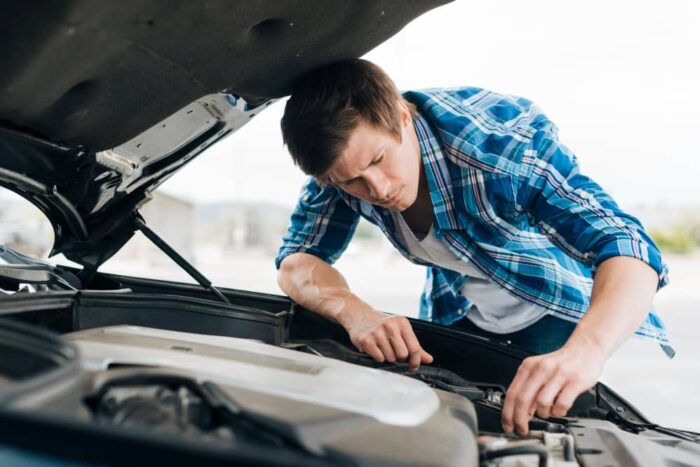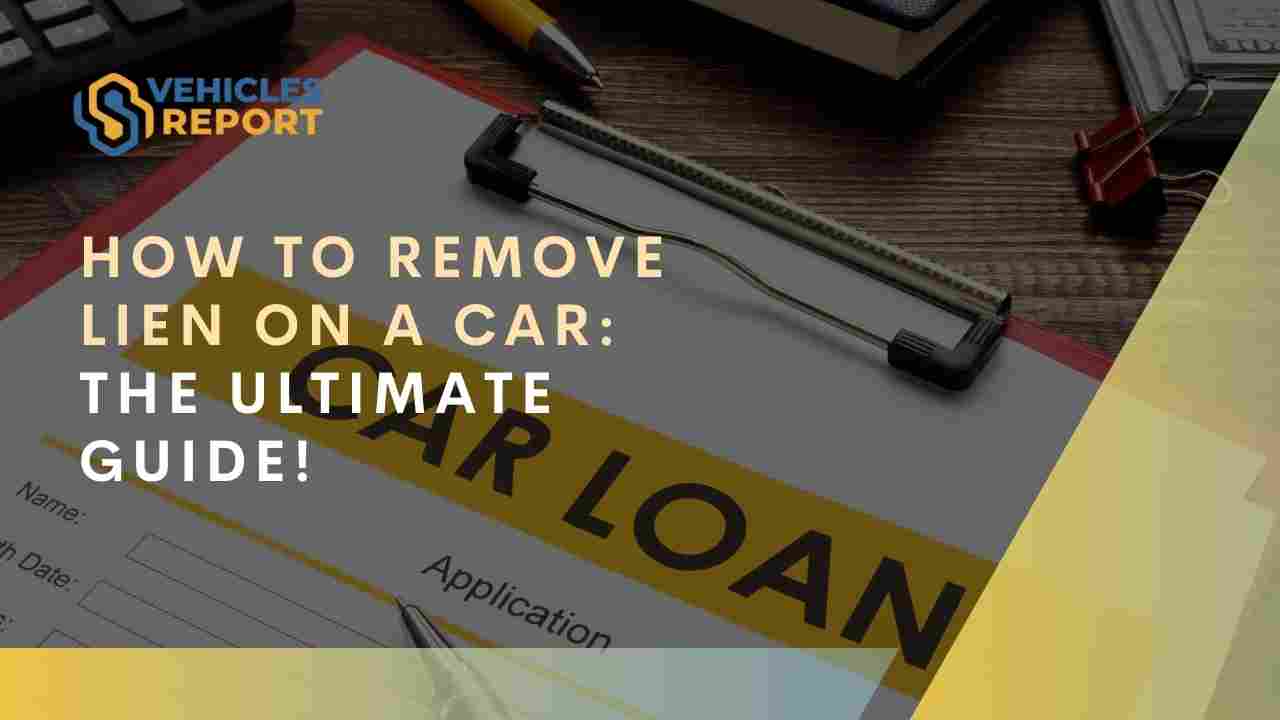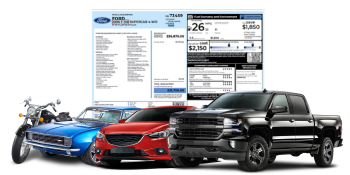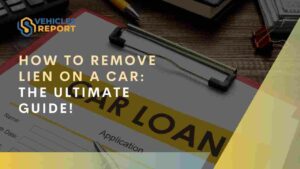The used car market is bigger than the new car market, and 75% of vehicles sold are used ones. As the market grows, other concerns like odometer fraud, stolen cars, and vehicles with bad histories also grow.
So shopping for a used car is not as easy as you think, and not knowing the right questions to ask when buying a used car may lead to a very challenging and regrettable experience for used car buyers – but it doesn’t have to be.
If you’re looking to buy a used car, this guide will help you know the right questions to ask to avoid buying a car with hidden problems, legal disputes, or paying more than the car’s worth—helping you make an informed decision.
Before we plunge into what questions to ask when buying a used car, let this be your best takeaway from this article – Never buy a car with an unknown history. Check the history of any used car regardless of what the seller might have told you or how beautiful the car looks on the outside.
What are the Questions to Ask When Buying a Used Car?
1. Why are they selling the car?
If you’re buying from a private seller, it’s worth asking why the car is on sale. Not every seller is dubious or looking to outsmart a buyer. There are still genuine sellers who want to sell for truthful reasons.
If you’re buying from a dealership, be bold and ask how and where they buy their cars. Some dealers may have carefully bought their cars from private sellers or dealer associates, while others may resell trade-in vehicles or vehicles from auction.
2. What is the car's actual Mileage?
Mileage is one factor used to determine the value of a car. So knowing the actual mileage of a car can give you an insight into the condition, level of wear and tear, value, and how much it’s worth.
However, some unscrupulous sellers may want to rollback the odometer to deceive the buyer into believing the car has much lower mileage. To avoid being a victim, simply conduct a car mileage check to verify the car’s mileage history and detect any mileage discrepancies.
3. How was the car maintained and serviced by previous owners?
This is where getting the vehicle history is key. This may be able to provide you with information about the vehicle’s service and maintenance records, but it’s not always all-encompassing.
You should ask the seller or dealer if the vehicle’s service records are available. Armed with information from the vehicle history report and the provided service records, you can confidently answer whether the vehicle was well-maintained or poorly maintained by past owners.
4. What Service was Performed to Get the Car Ready for Sale?
If you’re buying a preowned car from a private seller or a trade-in vehicle from a dealership, it is ordinarily expected to have had some servicing performed. This can range from basic services like oil changes and wiper replacement to extensive services like new tyre installation, brake pads, and rotor replacement.
So it’s right to ask the seller or dealer to provide any documentation showing these servicing and maintenance were done. This, in turn, may save you hundreds to thousands of dollars. You’ll be sure of what you’re paying for and when to think of any changes, replacements, or scheduled maintenance, helping you plan your budget.
5. How old is the car?
A new car starts to depreciate the day it leaves the manufacturer’s plant. Even a day-used new car will not sell at the original MSRP. So care to know the age of the car and when it was used by the first owner.
Many new cars are worth 60% less than their original value every five years. So if a new car is bought for $40,000, it will only be worth around $16,000 in the next five years. Knowing a car’s age from its first usage can help you easily negotiate a fair price.
6. What original Features are still available on the car?
If you’re a buyer fascinated by a car’s original features, options, and packages, you have nothing to lose by asking the seller about the originality of the features. Depending on the car’s usage, many of the features and accessories might have been replaced with spare parts.
You can ask about the engine, paint colours, upholstery, infotainment, etc. If you think the seller is honest enough about his explanation, you can easily decide whether you still want to buy the car.
Moreover, getting the car window sticker can help used car buyers verify a car’s original features, options, packages, and colours, including the MSRP (Manufacturer’s Suggested Retail Price). This can help you easily verify what has changed in the car since it has been in use, assisting you in making an informed buying decision.
7. Is the car still under warranty?
A used car can either be sold under warranty or “as is.” The latter means the car is no longer under warranty. So you need to know what you’re getting into, as buying a car with no warranty means you will have to deal with defects and malfunctions that need repair or replacement by yourself.
The good news is that some used cars are still under the manufacturer’s warranty, which suggests that the manufacturer or dealer will be completely responsible for any repairs and part replacements the car might require as long as the warranty is still on.
8. Is the car Faced with Any Mechanical Problems?
You don’t want to sign the papers and wire your hard-earned money to the seller before noticing some unusual sounds that signal a mechanical defect down the road. Finding out the engine is leaking fluid after a few weeks is something you don’t want to experience.
Therefore, ensure you do your homework well by verifying the car is free from any mechanical issues. During a test drive and inspection, get under the hood to verify everything is intact. Hiring a professional will make the process easier as they know the red signals they need to look out for.
9. Was the car in any accidents?
While some buyers still prefer to buy an accident car to save cost, it’s not always the case with every buyer. If you want to buy an accident-free car, ask the seller about the status.
An accident on a car can impact the vehicle’s condition and the title status. Some cars are branded, salvaged, totalled, or rebuilt depending on the severity of damage over the years.
In addition to asking the seller, you can get a vehicle history report from Detailed Vehicle History, Carfax, or AutoCheck. These are reliable sources.
10. Is the car returnable if a major issue arises within a specified time?
Most private sellers don’t always have a buyer’s remorse clause in the contract. However, some dealerships may allow you to return the car if you experience a serious mechanical issue.
Before signing on those dotted lines, ask the dealer if there is any provision for returning the car if things go haywire and know the conditions that must be met.
With this, you can rest assured that your investment is secured and peace of mind is guaranteed.
The Things to Inspect during a Test Drive

A test drive and physical inspection usually happen concurrently. So if you think you can test drive a car on your own, here are some of the essential things to check out. However, it’s best to hire a professional to do that for you.
- Seat
- Hoses and belts
- Trunk
- Sound system
- Pedals
- Fluid levels
- Battery
- Radiator
- Odor
- Check engine light and other controls
- Body condition
- Glass suspension
- Tires and wheels
- Light and signals
- Paint
What Can a Vehicle History Report Tell About a Used Vehicle?
- Vehicle specifications: year, make and model,
- Type of usage
- Ownership history
- Title records
- Mileage records
- Accident records
- Damage history
- Lien/loan records
- Theft records
- Sales history
- Recall information
- Auction history and images (if available)
There are many reputable vehicle history providers online that you can consult to get your vehicle history. If you’re on a tight budget but still want to access all the information on a car, simply utilise an alternative Carfax VIN check tool.
You only need to enter the vehicle’s VIN (vehicle identification number) into the tool to uncover all the previous records.
Conclusion
After asking all these fundamental questions and looking up the vehicle history, it’s very important to test drive the car and have it physically inspected by a professional mechanic.
This will ensure the car is free of hidden defects or mechanical problems, is in good condition, and that all its features are functioning properly. It will act as a seal to ensure a good purchase and guarantee safety down the road.
Frequently Asked Questions
Can I get a build sheet from a VIN number?
Can I Return the Car if I Don't Like It?
Yes, if you’ve found a car you’re looking for, it’s your right to know how the car has been serviced and if any servicing was done to prepare the car for sale.
Can I inspect the interior and exterior of the car?
Yes. During a physical inspection, it takes time to examine every angle of a car. This can be time-consuming, but it’s worth it. It’s always best to inspect a car in person, allowing you to see the car and ask important questions about its history.
Questions to ask when buying a used car from a private seller or online
Some of the questions to ask before buying a used car include the following:
Why is the car for sale?
What is the car’s age?
What was the car used for by previous owners?
Are there any mechanical issues etc
There is no limit to the number of questions you can ask when buying a used car. Be sure to ask the right questions to get the right answers.
What is a car Pre-purchase inspection?
A pre-purchase inspection (PPI) is a comprehensive vehicle inspection to assess the vehicle’s aesthetic, mechanical, and safety conditions. It’s usually carried out by a certified mechanic or auto specialist.









